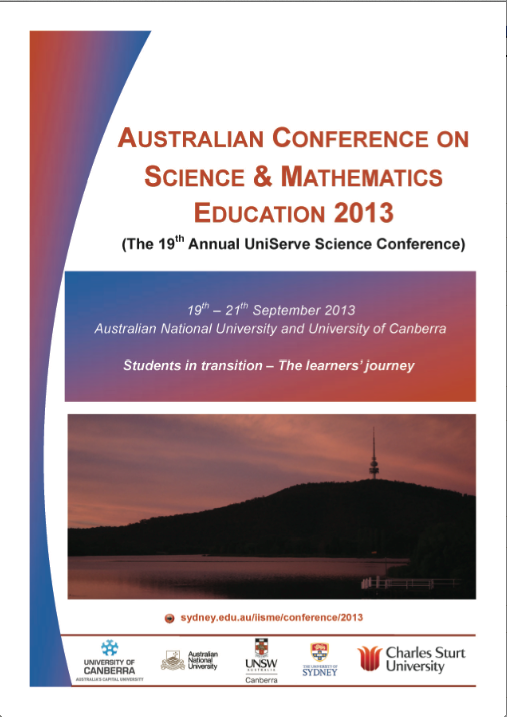Research-led education and student engagement
Abstract
Research-led education has been on the higher education scene for several decades with strong advocacy from prominent scholars (Boyer, 2000). There are multiple meanings associated with the phrase; with academics conveying to students the excitement of both the process and outcomes of research (Holbrook & Devonshire, 2005; Lopatto, 2004). There is evidence indicating that the student experience, both engagement and learning outcomes are greatly enhanced when research-led education is implemented. Educational evidence is often of snapshots of individual courses and programs taking up the endeavour (Healey, 2005; Seymour, Hunter, Laursen, & Deantoni, 2004). In the meantime, whole institutions have taken on-board the research-led paradigm (Wilson, Howitt, & Wilson, 2007; University of Canberra, 2011). This keynote will present a case study of ANU as the institution journeys into research-led education. Do student journeys reflect the paradigm? Examples of ANU’s “research-led education” will be presented, as will some from other institutions. The focus will be on innovative practices in the teaching of Science at ANU but examples will also be drawn from across the ANU including the ANU Vice-Chancellor’s Courses (see http://vc-courses.anu.edu.au/) that the speaker has been the key player in establishing. Trials and tribulations, constraints affordances, student voices and what next for ANU will also be discussed. REFERENCES Boyer, E. L. (2000). The Boyer Commission on educating undergraduates in the research university. Reinventing undergraduate education: A blueprint for America’s research universities. Stony Brook: New York. Healey, M. (2005). Linking research and teaching: exploring disciplinary spaces and the role of inquiry-based learning. In R. Barnett (Ed.). Reshaping the university: New relationships between research, scholarship and teaching (pp. 30-42). Maidenhead: McGraw-Hill/Open University Press. Holbrook, N. J. & Devonshire, E. (2005). Simulating scientific thinking online: an example of research-led teaching. Higher Education Research and Development, 24, 201–213. Lopatto, D.E. (2004) Survey of Undergraduate Research Experiences (SURE): first findings. Cell Biology Education, 3, 270–277. Newitt, P. (2007). Stimulating our Talented: The Bachelor of Philosophy (Honours) program. In K. Placing (Ed.) Proceedings of the Science Teaching and Learning Research Including Threshold Concepts Symposium, (pp 140-146). Sydney, NSW: UniServe Science. Seymour, E., Hunter, A., Laursen, S., & Deantoni, T. (2004). Establishing the benefits of research experience for undergraduates in the sciences: first findings from a three year study. Science Education, 88, 493–534. University of Canberra (2011). Research-Led Education at the University of Canberra Preamble. Retrieved August 31, 2013, from http://www.canberra.edu.au/uclearning/attachments/pdf/RLE-Final-Paper-Mar-2011.pdf. Wilson, A. N., Howitt, S. M., & Wilson, K. F. (2007). Research-led education: challenges and experiences. In K. Placing (Ed.) Proceedings of the Science Teaching and Learning Research Including Threshold Concepts Symposium, (p. 154). Sydney, NSW: UniServe Science.Downloads
Published
2013-09-24
Issue
Section
Keynote Presentations (Abstract)
